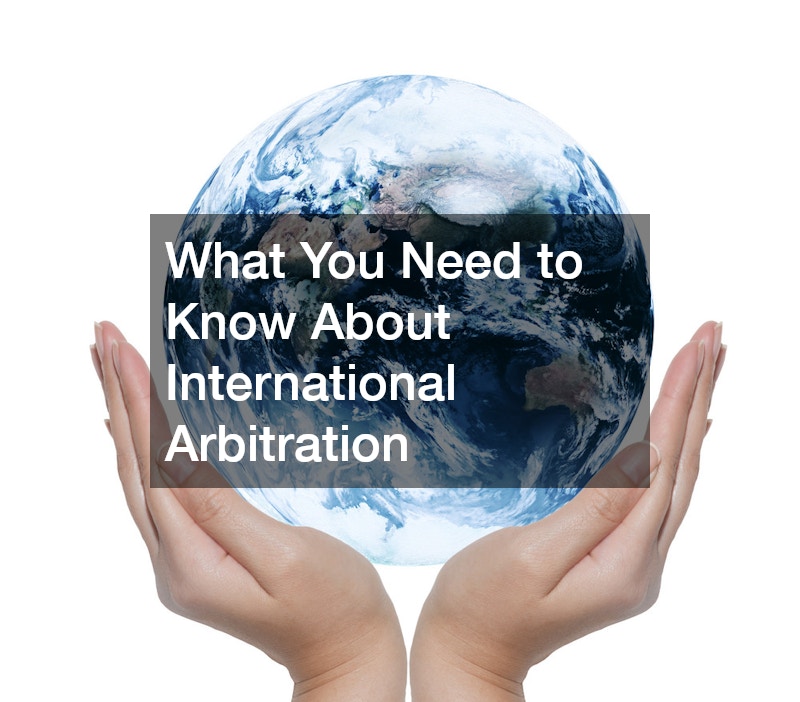In the ever-globalizing world of business, companies often find themselves entangled in disputes that cross borders. This is where multinational arbitration comes into play. If you’re a business owner or entrepreneur, understanding the ins and outs of international arbitration can save you time, money, and a lot of headaches. Let’s dive into what multinational arbitration is all about and why having a commercial lawyer by your side is essential.
What is International Arbitration?
International arbitration is a method of resolving commercial disputes between parties from different countries without going to court. It’s like taking your case to a private judge whose decision is binding. This form of arbitration is favored because it is generally faster, more flexible, and less formal than traditional court proceedings.
One of the key benefits of multinational arbitration is that it provides a neutral ground for resolving disputes. This is crucial in commercial disputes where the parties might be wary of biases in each other’s local courts. Multinational arbitration offers a streamlined process governed by mutually agreed-upon rules.
The Role of a Commercial Lawyer
Having a commercial lawyer who clearly understands its nuances can be a game-changer. These legal experts help draft arbitration clauses in contracts, ensuring that if a dispute arises, it can be resolved efficiently through arbitration. They also assist in selecting the right arbitration institution and rules that best suit your business needs.
When a dispute does arise, a commercial lawyer represents your interests during the arbitration proceedings. They handle everything from gathering evidence and presenting your case to negotiating settlements. Their expertise in commercial litigation ensures that you are well-prepared and that your case is presented in the best possible light.
The Multinational Arbitration Process
- Agreement to Arbitrate: The process begins with an agreement between the parties to resolve their disputes through arbitration. This is usually included as a clause in the business contract.
- Selection of Arbitrators: The parties select one or more arbitrators who act as neutral decision-makers. These arbitrators are often experts in the field relevant to the dispute.
- Submission of Claims and Responses: Each party submits their claims and responses, along with supporting evidence. This is akin to the pleadings stage in traditional litigation.
- Hearing: An arbitration hearing is held where both sides present their arguments and evidence. Unlike court trials, these hearings are usually private and less formal.
- Award: After the hearing, the arbitrator(s) issue a decision, known as an award. This award is binding and enforceable in most jurisdictions under international treaties like the New York Convention.
Advantages of International Arbitration
Multinational arbitration offers several advantages over traditional litigation. One of the biggest is confidentiality. Unlike court cases, which are public, arbitration proceedings are private. This is especially important for businesses that wish to keep their disputes and sensitive information out of the public eye.
Another advantage is the speed of the process. Court cases can drag on for years, whereas arbitration can often be completed in a matter of months. This allows businesses to resolve disputes quickly and get back to focusing on their operations.
Challenges and Considerations
Despite its advantages, multinational arbitration is not without challenges. One potential drawback is the cost. While arbitration can be faster and less formal, it can also be expensive, especially if the arbitrators are high-profile experts. It’s essential to weigh these costs against the potential benefits.
Additionally, enforcement of arbitration awards can sometimes be tricky. While most countries recognize and enforce arbitration awards under treaties like the New York Convention, there can still be hurdles, especially in countries with less developed legal systems. This is where the expertise of a commercial lawyer becomes invaluable, helping navigate the complexities of enforcing an award internationally.
Navigating International Arbitration with Confidence
In the complex world of international business, understanding multinational arbitration is crucial for resolving commercial disputes efficiently and effectively. Whether you’re dealing with a contract disagreement or a more complex commercial litigation matter, it’s crucial to have a commercial lawyer by your side.
Ultimately, being well-versed in international arbitration equips you with a powerful tool for navigating the global business landscape. So, as you venture into international markets, ensure you have a trusted expert like Judge Robert Henry to guide you through the intricacies of multinational arbitration, protecting your interests and helping you achieve favorable outcomes in your commercial disputes.
